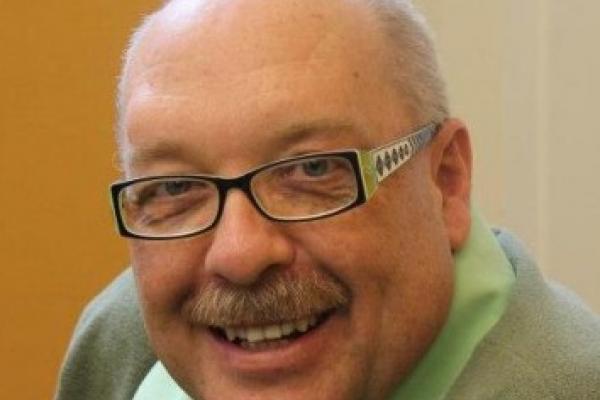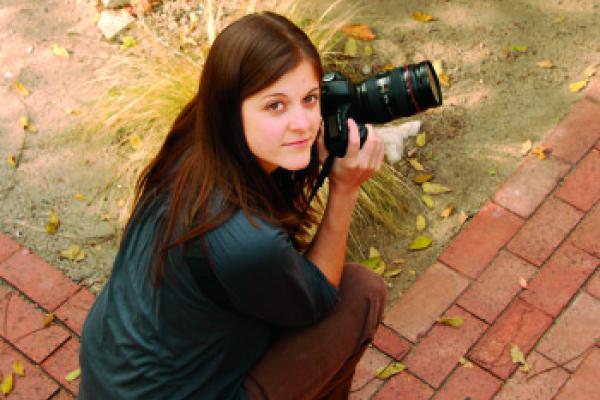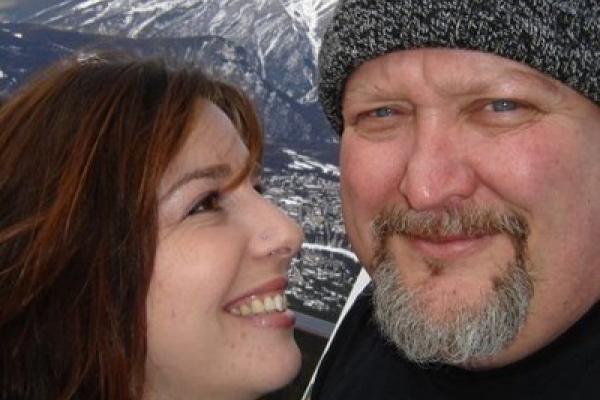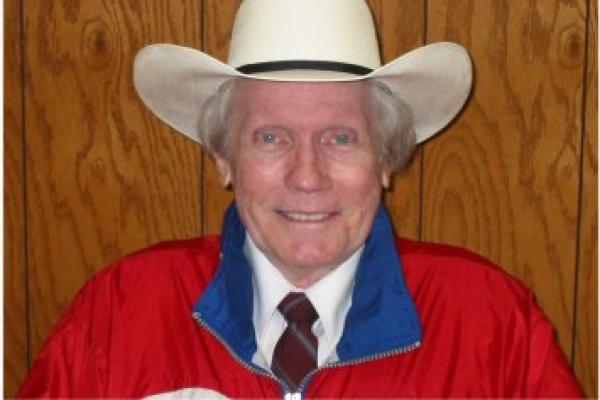I don’t know what came over me. Was it what Noel Castellanos (CEO of CCDA) had said? What Jim Wallis (President of Sojourners) had said? Perhaps. I couldn’t keep the tears from coming. Walking up Broadway Street in Los Angeles in the middle of a Saturday afternoon as a crowd of people blew horns, held signs, and chanted, “Immigration reform now,” I wept. It was because of Ivone. I was even wearing my Faith is Greater Than Fear shirt but lurking along the sidewalk, not intending to get involved. But it's too late for that. I love Ivone like a sister, I’m already knee deep in it.
Jim, Noel, and Jenny Yang (World Relief) had just been speaking on a panel at the Justice Conference about immigration reform. Jim said that we had to pass comprehensive immigration reform now, before the summer recess. And I knew in my heart that he was right. Because if we don’t, then Ivone will continue to lie in limbo along with 11 million other aspiring Americans, perhaps being deported in a couple of years. We will both continue to live in uncertainty and fear.
Fred Phelps, famous for picketing funerals with vicious anti-gay messages, died this week. His estranged son, Nate, had posted on Facebook that the 84-year-old Phelps had been excommunicated from his own Westboro Baptist church and was in hospice end-of-life care.
Nate and other Phelps children and grandchildren abandoned this church of hate over the years. In the end, Fred Phelps died without the comfort of church or family.
When I heard Fred Phelps was on his deathbed, I grieved for Nate. His whole life was spent either learning the lessons of hatred from his father — or recovering from them. I grieved that Nate Phelps was banned by his family from saying a final goodbye to his father which could have brought healing and closure for Nate in his battle against hate.
When Vanessa Willock wanted an Albuquerque photographer to shoot her same-sex commitment ceremony in 2006, she contacted Elane Photography. The response came as a shock: Co-owner Elaine Huguenin said she only worked on “traditional weddings.”
“Yes, you are correct in saying we do not photograph same-sex weddings,” Huguenin responded.
Now 7 1/2 years after that e-mail exchange, the Supreme Court is considering whether to referee the dispute.
Nathan Phelps, the estranged atheist son of anti-gay Kansas pastor Fred Phelps who died Wednesday, is asking people to look beyond his father’s legacy of hate.
The younger Phelps, who is 55 and goes by Nate, is one of four of Fred Phelps’ 13 children who renounced their father’s activities, which included picketing the funerals of veterans, AIDS victims, and celebrities and left his Westboro Baptist Church in Topeka, Kan. The church of approximately 40 members of the Phelps clan is best known for its public protests and colorful signs declaring, “God hates fags.”
Fred Phelps died early Thursday morning. Phelps was best known for his deeply rooted hatred and promulgating the tasteless slogan “God Hates Fags.” His little group of mostly extended family members that comprised the 59-year-old Westboro Baptist Church in Topeka, Kansas, carried their signs with such ugly and painful statements all over the country. Phelps’ small cult got the most attention for their protests of military and other high-profile funerals, claiming that the slain soldiers deserved to die as a consequence of God’s judgment against America’s tolerance of gay and lesbian people. Such shameful and angry messages, understandably, caused great pain among the mourners and family members grieving their loved ones.
I drive a Prius. I wouldn't exactly say it's a sexy car; the word "practical" comes to mind. It gets good mileage, is safe, and fits our family of four just fine in most cases. It's gotten its share of bings and dents over the years, but it has been a very reliable and low maintenance way to get around town.
Of course, what I really want is a Tesla. My son wants one too. There is a showcase for them in a local storefront, and he begs me to go by for a visit every time we are nearby. Though he is only 10, he already makes a pretty strong case to my wife, explaining how much of the cost of the car will be offset by the savings in gas, and he was elated to find out it was recently rated the safest car on the road.
So far it hasn't worked in our favor. But we keep trying.
This, of course, is not envy; it is simply good old-fashioned greed. The thing I have is sufficient, only until something newer, edgier, shinier comes along (which, in America, is a daily occurrence). Then suddenly, perfectly good car in our driveway has shortcomings and liabilities that were, hereto for, invisible to us.
Envy is different, and I would argue that it actually is worse than greed. While the latter is simply our desire off of its proverbial chain, envy gets personal. It is the easy but unattractive marriage of greed and judgment. Yes, we desire what someone else has, but there is more to it. When we are envious, we gain nearly as much pleasure from the idea of the other person not having the thing we want as we do from the idea of having it ourselves.
As we near the March 25 arguments in Hobby Lobby v. Sebelius, it can feel as though men have the monopoly on religious activism in America. After all, 38 protestant theologians signed on to an amicus brief suggesting that a business owner’s religious beliefs should dictate the consciences and actions of female employees – none of those theologians were women.
A glance at the past, present, and future of women’s leadership in American religious life, however, shows this simply is not true. Today, as throughout American history, women have fought for their voice in religion, the opportunity to express their faith, and to obtain the same access to religious leadership as their brothers. Just as in other areas of work and life, creating opportunities for women to increase their hand in religious leadership is vital to greater equality and new perspectives in theology, moral activism, and spirituality.
Despite the increase in women in clergy careers over the last 40 years, it has been an uphill battle for women who have changed hearts, minds, and traditions for career opportunities as clergy and religious leaders in churches, synagogues, and mosques. Issues around the “ stained glass ceiling” in clergy careers can range from discouraging congregants who are biased against women clergy to institutional inequalities: men still outnumber women in clergy positions in America, and, according to the Bureau of Labor Statistics, only 20.5 percent of self-described clergy were women in 2012. In certain religious traditions — the Roman Catholic Church, the Church of Jesus Christ of Latter Day Saints, the Orthodox Church, and Orthodox Judaism, for example — women cannot be ordained as clergy or prayer leaders. It is also very rare to find Muslim women leading mixed-gender services.





